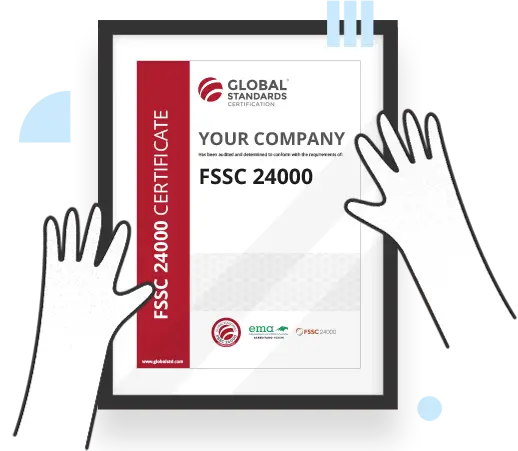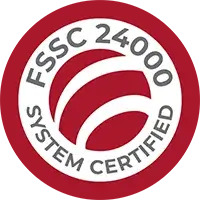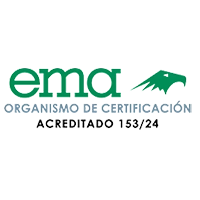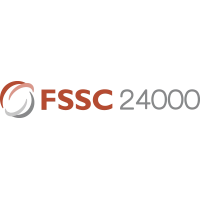

CERTIFICATION
FSSC 24000
The FSSC 24000 scheme is a social management system scheme. It aims to support organizations to drive continuous improvement in their management system, protect their brand and acquire an approach that contributes to the sustainable development objectives determined by the united nations.
The scheme is based on: BSI/PAS 24000 – Social Management System and FSSC 24000 Additional Requirements (determined by FSSC stakeholders).
This scheme is intended for organizations in the manufacturing and processing sector (food and non-food), including the provision of services. The only exclusions considered are Processing, manufacturing, and related trade to tobacco and tobacco products, fur and fur products, weapons, explosives, ammunition, and nuclear fuel products.
The FSSC 24000 scheme is aligned with the harmonized ISO structure. Organizations with an established and certified management system will be able to integrate this certification scheme with a focus on compliance with social objectives and performance.
FSSC 24000 Requirements
To obtain FSSC 24000 certification, organizations shall develop, implement, and maintain the following requirements of the scheme:
a. Define the scope of their certification.
This must include the entire site and all workers (permanent, non-permanent, temporary, and part-time). No exclusions are allowed.
b. Maintain evidence of the implementation or integration of the system (recommended at least 3 months), in addition to the requirements of BSI/PAS 24000:2022 which specifies the requirements for a social management system, the additional requirements of the FSSC 24000 scheme and the list of stakeholder board decisions (BoS) containing the decisions applicable to the scheme.
c. Maintain internal auditors with the competence to perform FSSC 24000 audits.
| Sector | IAF Code | Description | ||||||||||||||||||||||||||||||||||||
|---|---|---|---|---|---|---|---|---|---|---|---|---|---|---|---|---|---|---|---|---|---|---|---|---|---|---|---|---|---|---|---|---|---|---|---|---|---|---|
|
|
|||||||||||||||||||||||||||||||||||||
| Other related services |
|
|||||||||||||||||||||||||||||||||||||
BENEFITS
Improved labor relations, health, and safety at work
Driving continuous improvement on critical social issues
Application of due diligence in your supply chain management
Implement a social management system in your organization.
HOW TO BE CERTIFIED?
The certification process pays attention to every detail to make sure that the company duly complies with all of the standard’s requirements.
1
Quote and signing of the contract
2
Planning and Development of Audit
3
Closing of Non-Conformities
4
Certification Committee and Issuance of the Certificate

NEXT COURSES


